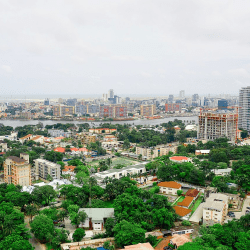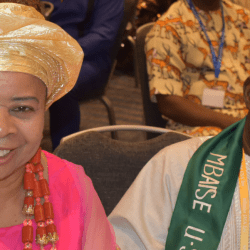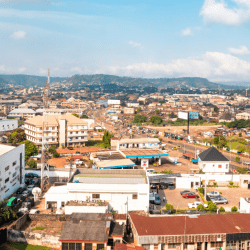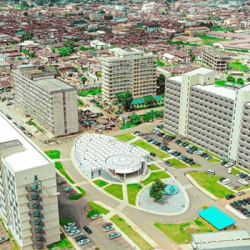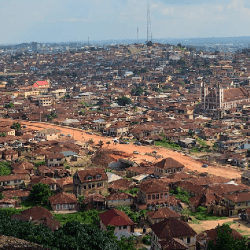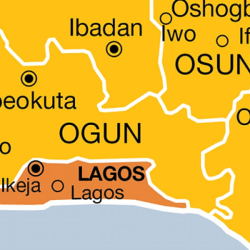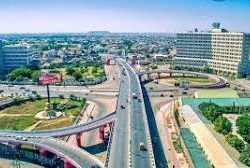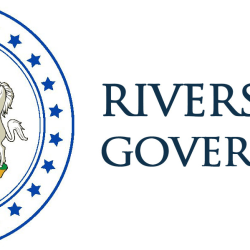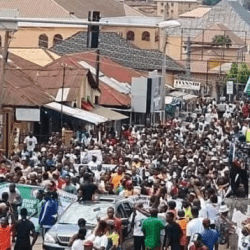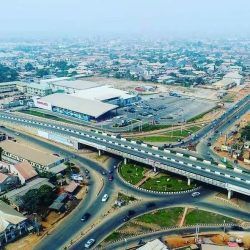Lagos State executive cabinet: Commissioners, SSG, HoS & others during Babatunde Fashola administration as of 2009
| NAME | PORTFOLIO | ||
| 1 | Mr. Babatunde Raji Fashola (SAN) | Executive Governor | |
| 2 | Mrs. Sarah Bisi Sosan | Deputy Governor | |
| 3 | Princess Adenrele Adeniran-Ogunsanya | Secretary to the State Government | |
| 4 | Mr. Yakub Abiodun Balogun | Head of Service | |
| 5 | Mr. Lanre Babalola | Chief of Staff | |
| 6 | Hon. Adeniyi Oyemade | Honourable Commissioner | Commerce & Industry |
| 7 | Mr. Ben Akabueze | Honourable Commissioner | Economic Planning & Budget |
| 8 | Dr. Muiz Banire | Honourable Commissioner | Environment |
| 9 | Mr. Jide Sanwoolu | Honourable Commissioner | Establishment & Training |
| 10 | Mr. Rotimi Oyekan | Honourable Commissioner | Finance |
| 11 | Dr. Jide Idris | Honourable Commissioner | Health |
| 12 | Hon. Tunde Balogun | Honourable Commissioner | Home Affairs & Culture |
| 13 | Hon. Dele Onabokun | Honourable Commissioner | Housing |
| 14 | Mr. Opeyemi Bamidele | Honourable Commissioner | Information & Strategy |
| 15 | Mr. Supo Sasore | Honourable Commissioner | Justice |
| 16 | Mr. Rotimi Agunsoye | Honourable Commissioner | Local Government |
| 17 | Mr. Bolaji Abosede | Honourable Commissioner | Physical Planning & Urban Development |
| 18 | Prince Lanre Balogun | Honourable Commissioner | Rural Development |
| 19 | Dr. Kadri Obafemi Hamzat | Honourable Commissioner | Science & Technology |
| 20 | Dr. Tola Kasali | Honourable Commissioner | Special Duties |
| 21 | Sen. Tokunbo Afikuyomi | Honourable Commissioner | Tourism and Intergovernmental Relations |
| 22 | Prof. Bamidele Badejo | Honourable Commissioner | Transportation |
| 23 | Prince Adesegun Oniru | Honourable Commissioner | Water Infrastructure |
| 24 | Mrs. Joke Orelope-Adefulire | Honourable Commissioner | Women Affair & Poverty Alleviation |
| 25 | Prince Demola Adeniji-Adele | Honourable Commissioner | Youth, Sports & Social Developmemt |
| 26 | Chief Enoch Kolapomoye Ajiboso | Honourable Commissioner | Agriculture & Cooperatives |
| 27 | Hon. Oyin Danmole | Special Adviser | Central Business District |
| 28 | Mrs. Olusola Oworu | Special Adviser | Commerce |
| 29 | Dr. Elijah Olu Adewale | Special Adviser | Education |
| 30 | Mr. Sesan Olanrewaju | Special Adviser | Environment |
| 31 | Mr. Femi Adebanjo | Special Adviser | Establishment & Training |
| 32 | Mr. Akinsanya Sunny Ajose | Special Adviser | Governor’s Office |
| 33 | Hon. Toyin Amzat | Special Adviser | Health |
| 34 | Mr. Jimoh Ajao | Special Adviser | Housing |
| 35 | Hon. Olalekan Ifemade | Special Adviser | Local Government |
| 36 | Hon. Abdul Lateef Abdul Hakeem | Special Adviser | Political & Legislative Matters |
| 37 | Hon. Paul Kalejaiye | Special Adviser | Rural Development |
| 38 | Mr. Afolabi Kofo-Abayomi | Special Adviser | Special Duties |
| 39 | Mr. Ade Ipaye | Special Adviser | Taxation/Revenue |
| 40 | Mr. Kayode Opeifa | Special Adviser | Transportation |
| 41 | Engr. Ganiyu Johnson | Special Adviser | Works & Infrastructure |
| 42 | Dr. Dolapo Badru | Special Adviser | Youth, Sports & Social Developmemt |
Lagos
Lagos is the commercial capital of Nigeria and the most populated city in the country and Africa.

It was the administrative capital of Nigeria until December 1991 following the government’s decision to move the capital to Abuja in the centre of the country.

Lagos is a major African financial centre and is an economic hub.

The city has been described as the cultural, financial, and entertainment capital of Africa, and is a significant influence on commerce, entertainment, technology, education, politics, tourism, art, and fashion.

Lagos is also among the top ten of the world’s fastest-growing cities and urban areas.

The megacity has the fourth-highest GDP in Africa and houses one of the largest and busiest seaports on the continent.
The Lagos metropolitan area is a major educational and cultural centre in Sub Saharan Africa.

Lagos emerged as a home to the Awori tribe of the Yoruba of West Africa islands, which are contained in the present day Local Government Areas (LGAs) of Lagos Island, Eti-Osa, Amuwo-Odofin and Apapa.

Due to rapid urbanisation, the city expanded to the west of the lagoon to include areas in the present day Lagos Mainland, Ajeromi-Ifelodun, and Surulere.
This led to the classification of Lagos into two main areas: the Island, which was the original city of Lagos, and the Mainland, which it has since expanded into.
This city area was governed directly by the Federal Government through the Lagos City Council, until the creation of Lagos State in 1967, which led to the splitting of Lagos city into the present-day seven Local Government Areas (LGAs), and an addition of other towns (which now make up 13 LGAs) from the then Western Region to form the state.

The islands are separated by creeks, fringing the southwest mouth of Lagos Lagoon, while being protected from the Atlantic Ocean by barrier islands and long sand spits such as Bar Beach, which stretch up to 100 km east and west.

However, the state capital was later moved to Ikeja in 1976, and the federal capital moved to Abuja in 1991.

Even though Lagos is still widely referred to as a city, the present-day Lagos, also known as “Lagos Metropolitan Area” is an urban agglomeration or conurbation, consisting of 16 LGAs including Ikeja, the state capital of Lagos State.

This conurbation makes up 37% of Lagos State total land area, but houses about 85% of the state’s total population.

The business district of Lagos is home to Tinubu Square, named after the aristocratic slave trader Efunroye Tinubu. Lagos contains Murtala Muhammed International Airport, named after Nigerian president Murtala Muhammad, and is one of the busiest African airports. Lagos National Stadium has hosted various international sports events such as the 1980 African Cup of Nations.

